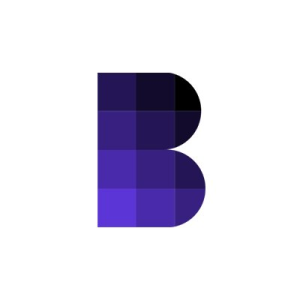Forex Trading: Halal or Haram? A Comprehensive Islamic Perspective Forex trading has become a popular financial activity globally, offering opportunities to earn profit by trading currencies. However, for Muslims, the question arises: Is forex trading halal or haram? The answer to this question lies in understanding Islamic financial principles and how they apply to forex trading. In this article, we will explore the Islamic perspective on forex trading, the factors that make it halal or haram, and how Muslims can participate in forex trading ethically. What Is Forex Trading? Forex trading, also known as foreign exchange trading, involves buying and selling currency pairs in the global currency market to make a profit. Traders speculate on the price movements of currencies like USD, EUR, GBP, and JPY, aiming to capitalize on their value fluctuations. Forex trading operates 24/5 and is driven by global events, market trends, and economic indicators. The forex market’s leverage, liquidity, and profit potential attract traders worldwide, including those from Islamic communities. The Islamic Perspective on Forex Trading Islamic finance operates under specific guidelines to ensure all financial transactions are ethical, transparent, and free from prohibited activities. These principles are derived from Shariah law , and any form of trade or investment must comply with the following criteria: 1. Prohibition of Riba (Interest) Interest-based transactions are strictly forbidden in Islam. In traditional forex trading, interest may be incurred through overnight positions or swap rates, which contradict Islamic principles. 2. Gharar (Uncertainty and Speculation) Islam discourages excessive uncertainty and speculative transactions, which are prevalent in forex trading. Contracts must be clear and transparent to avoid exploitation or unfair practices. 3. Haram Activities Investments must not involve haram (forbidden) industries or activities, such as alcohol, gambling, or unethical businesses. 4. Immediate Settlement In Islamic finance, trades must involve the immediate transfer of goods or services. This principle raises questions about the legitimacy of delayed settlements in forex trading. When Is Forex Trading Considered Halal? Forex trading can be deemed halal if it complies with Islamic principles. To ensure halal forex trading, the following conditions must be met: 1. No Riba (Interest-Free Accounts) Forex brokers offering Islamic forex accounts ensure that no interest is charged or earned on overnight positions. These accounts are designed for Muslim traders, eliminating swap rates or interest charges. 2. Transparency in Contracts All transactions should be clear, transparent, and free from ambiguity. The terms of the trade, including profit and loss potential, must be explicitly defined. 3. No Speculative Gambling Forex trading should not resemble gambling. Instead, traders must base their decisions on analysis, research, and market understanding rather than blind speculation. 4. Immediate Execution Forex trades should involve the instant exchange of currency. Contracts that delay settlement or involve deferred payments are not compliant with Islamic principles. When Is Forex Trading Considered Haram? Forex trading is considered haram if it involves activities that contradict Shariah principles. Here are common scenarios where forex trading is deemed haram: 1. Earning Interest (Riba) If a trader earns or pays interest on overnight positions, it violates Islamic laws, making the trade haram. 2. Excessive Speculation (Gharar) Trading purely based on speculation or without proper analysis can be likened to gambling, which is forbidden in Islam. 3. Trading with Leverage While leverage allows traders to control larger positions with smaller investments, it often involves borrowing, which may include interest payments, rendering it non-compliant. 4. Haram Activities or Industries Investing in or benefiting from haram industries through forex trading is strictly prohibited. Islamic Forex Accounts: A Solution for Ethical Trading To cater to Muslim traders, many brokers now offer Islamic forex accounts . These accounts align with Shariah principles by eliminating interest-based transactions and ensuring ethical practices. Key Features of Islamic Forex Accounts: No Swap Fees: Swap rates or rollover fees are removed for overnight positions. Transparent Contracts: Terms are clear and straightforward. Ethical Trading: Brokers comply with halal trading practices, avoiding haram activities. Popular Brokers Offering Islamic Accounts: Exness XM IC Markets Pepperstone Before opening an Islamic forex account, traders should verify the broker’s credentials and Shariah compliance. Scholarly Opinions on Forex Trading Islamic scholars have diverse opinions regarding forex trading. While some consider it haram due to its speculative nature and involvement of interest, others believe it can be halal if conducted under specific conditions. Support for Halal Forex Trading: Scholars argue that forex trading, when done with Islamic accounts, eliminates haram elements like riba. Proper analysis and risk management ensure that trading does not become speculative gambling. Criticism of Forex Trading: Critics highlight the high-risk nature of forex trading, which can resemble gambling. The use of leverage and delayed settlements are common concerns. How to Trade Forex Halal? A Step-by-Step Guide If you’re a Muslim trader aiming to trade forex ethically, follow these steps: Step 1: Choose a Shariah-Compliant Broker Select a broker offering Islamic forex accounts to ensure your trades are free from interest. Step 2: Learn the Market Educate yourself about forex trading fundamentals, technical analysis, and market trends to make informed decisions. Step 3: Avoid Speculation Base your trades on thorough research and analysis instead of gambling or guesswork. Step 4: Use Proper Risk Management Implement stop-loss and take-profit levels to minimize risks and protect your capital. Step 5: Trade Ethically Ensure that your trades involve immediate execution and do not violate Islamic principles. Forex Trading Alternatives for Muslim Investors If you’re unsure about forex trading’s halal status, consider alternative investment options: 1. Stocks (Halal Stocks) Invest in Shariah-compliant companies listed on Islamic stock indices like Dow Jones Islamic Market Index. 2. Sukuk (Islamic Bonds) Sukuk provides returns without earning interest, making it a halal investment option. 3. Real Estate Investing in properties offers stable, long-term returns and complies with Islamic principles. Advantages and Risks of Halal Forex Trading Advantages: Ethical Compliance: Trade with peace of mind knowing your investments align with your faith. Access to Global Markets: Participate in one of the world’s largest financial markets. Financial Opportunities: Leverage forex trading to diversify your investment portfolio. Risks: Market Volatility: Forex markets can be unpredictable and risky. High Leverage: Even with Islamic accounts, using leverage can lead to significant losses. Complexity: Forex trading requires a deep understanding of market dynamics. Conclusion: Is Forex Trading Halal or Haram? The halal or haram status of forex trading depends on how it is conducted. By eliminating interest, avoiding speculation, and adhering to Shariah principles, forex trading can be considered halal. However, traders must exercise caution, choose Shariah-compliant brokers, and trade ethically to ensure compliance with Islamic laws. For Muslims interested in exploring forex trading, Islamic forex accounts offer a viable solution. Always consult with knowledgeable scholars or Islamic finance experts if you have doubts about the permissibility of forex trading. To learn more about the innovative startups shaping the future of the crypto industry, explore our article on latest news, where we delve into the most promising ventures and their potential to disrupt traditional industries.





















